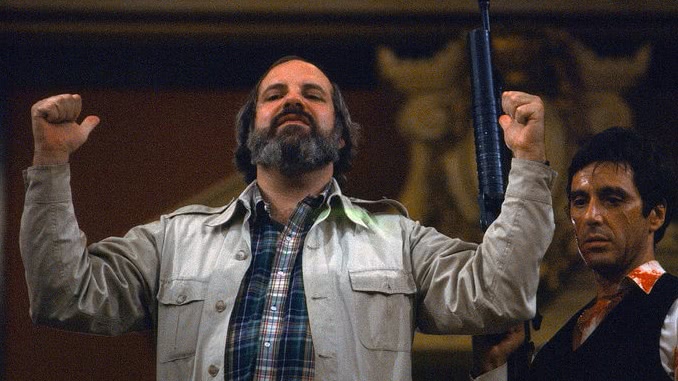★★★★☆
Watching is creating. To bear witness to an event is to be an essential part of it, and there is nothing passive about being a spectator. If there’s any one American filmmaker who fully understands this, it’s Brian De Palma, the carnage-driven auteur behind Carrie and Scarface, and a man whose life and work is profiled in exhaustive, near-obsessive detail in De Palma.
The documentary is as stripped-down as they come. De Palma himself is the sole player interviewed, and other than cut-aways to his work and the work of directors he admires (Hitchcock of course, along with less-predictable figures like Truffaut and Godard) the film features nothing but the man in the living room of his New York house, talking his way through each of his films.
Every movie is covered, and though some are profiled in less details than others (the unfairly-maligned The Black Dahlia is treated like the afterthought many critics accused it of being), it’s just as fascinating to hear De Palma to talk about a lopsided miss like Mission To Mars as it is to hear him pour over masterpieces like Body Double. Powerfully, the man seems slightly mystified as to what makes a film a success and what makes it a failure, and though he is nothing if not a profoundly technical filmmaker, even the detail-fascinated De Palma admits that moviemaking is a kind of magic.
The film also features a pleasing tension between documentary and subject, a weird interplay between De Palma’s directors, Noah Baumbach and indie filmmaker Jake Paltrow, and the maverick himself. Both well known for their low-key dramas, Baumbach and Paltrow are about the two unlikeliest De Palma fans as could be imagined, and at several key points the interview subject makes implicit reference to the difference between his own flicks and the ones made by his interviewees. “You people come up with characters first, and then the situation,” De Palma says. “Whereas I come up with the set pieces and fill them with characters and the plot.”
It’s a nice postmodernist touch that wouldn’t seem out of place in one of De Palma’s own films: the form arguing with itself; a move making explicit reference to the fact that it’s a movie. But more than that, it’s also a powerful reminder of De Palma’s influence. The man hasn’t just affected horror filmmakers and those who helm thrillers – he has definitively altered the language of the medium. He’s not a director, he’s a force of nature, and in that way, as a celebration of his profound impact, De Palma is an unmitigated triumph.
Reviewed as part of the Sydney Underground Film Festival.


































